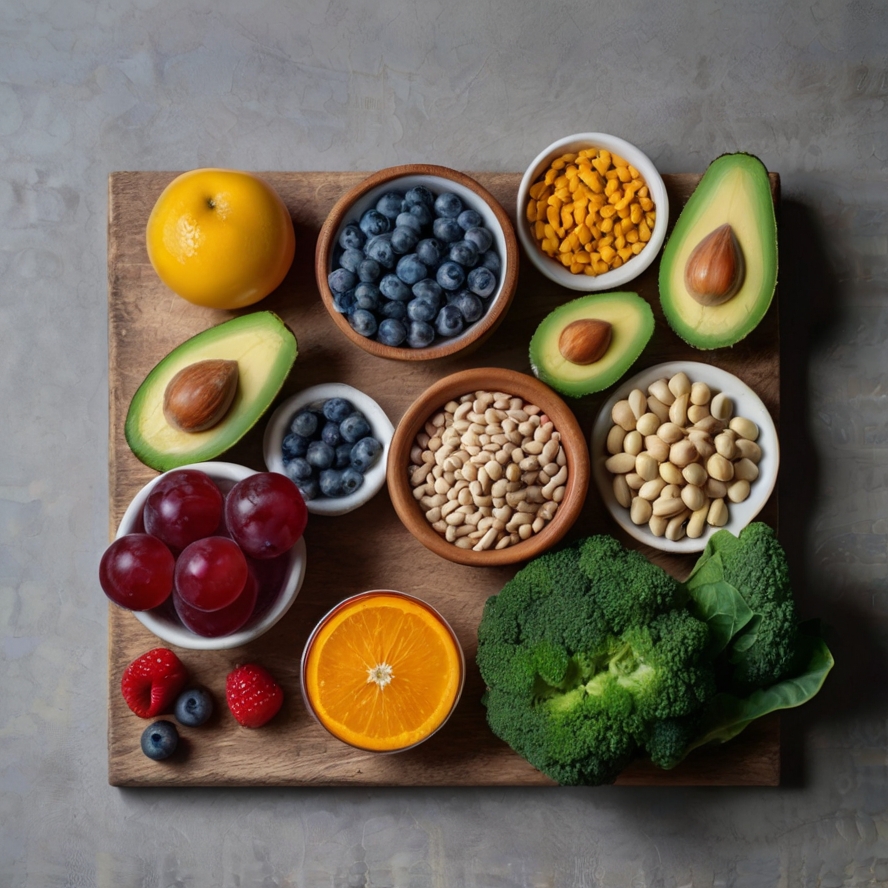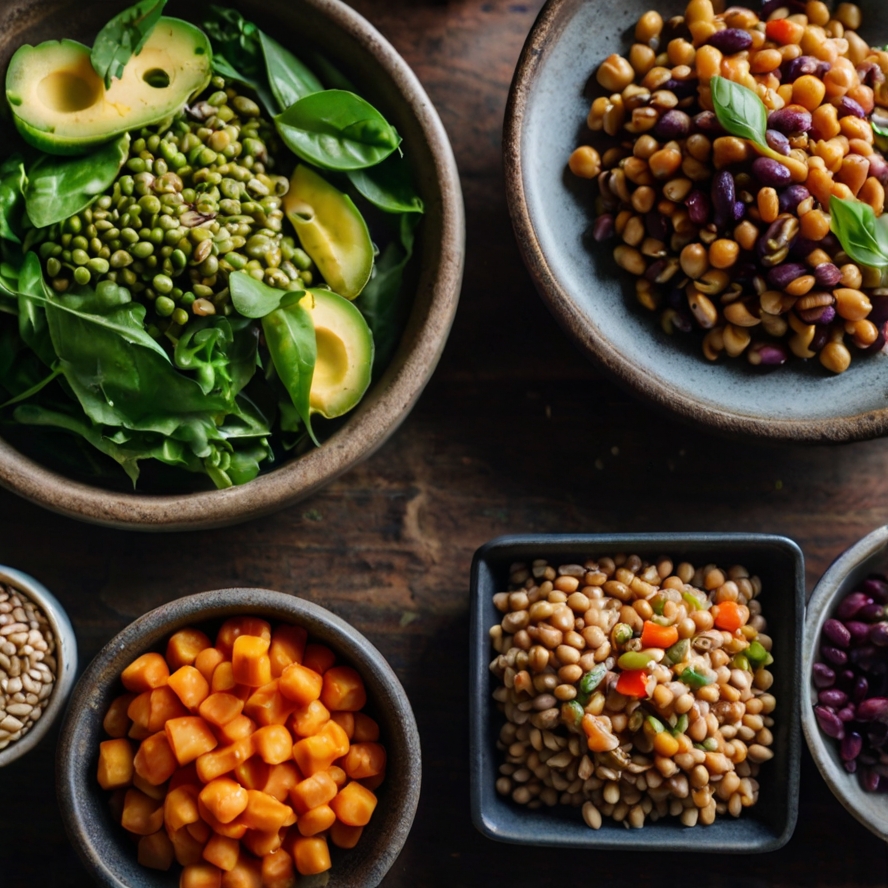Disclosure:
Thank you for reading this post, don't forget to subscribe!
Some of the links on this website are affiliate links. This means that if you click on the link and make a purchase, we may receive a small commission at no extra cost to you. Your support helps us keep the site running.Learn more on my Privacy Policy and Affiliate Disclosure page. Thank you for your support!
Are you considering adopting a plant-based diet but concerned about potential nutrient deficiencies? You’re certainly not alone. Plant-based eating has surged in popularity due to its numerous health and environmental benefits. However, without careful planning, transitioning to a plant-based diet can lead to nutritional gaps. In this comprehensive guide, we’ll explore how to successfully navigate plant-based diets, identify common nutrient deficiencies, and provide actionable tips to ensure you thrive nutritionally.
READ NEXT:
Understanding Plant-Based Diets
Plant-based diets primarily consist of foods derived from plants, including vegetables, fruits, legumes, grains, nuts, and seeds. While these diets offer incredible health benefits, understanding their nutritional challenges is crucial to avoid deficiencies.
According to research from the Academy of Nutrition and Dietetics, appropriately planned plant-based diets can significantly reduce the risk of chronic diseases such as heart disease, diabetes, and obesity.
Common Nutrient Deficiencies in Plant-Based Diets and How to Prevent Them

Vitamin B12
Vitamin B12 is essential for nerve function, red blood cell production, and DNA synthesis. It’s naturally found mainly in animal products, making supplementation or fortified foods crucial for plant-based eaters.
Actionable Tips:
- Include B12-fortified foods like plant-based milk, cereals, and nutritional yeast.
- Consider taking a high-quality B12 supplement regularly.
Iron
Iron plays a critical role in oxygen transportation throughout the body. Plant-based diets provide non-heme iron, which is less readily absorbed than the heme iron found in animal products.
Boosting Iron Absorption:
- Pair iron-rich foods (beans, lentils, spinach, quinoa) with vitamin C sources (citrus fruits, bell peppers).
- Avoid tea and coffee during meals, as they can inhibit iron absorption.
Calcium
Calcium is vital for maintaining strong bones and teeth. Dairy products are traditional sources, so plant-based diets require alternative calcium-rich foods.
Plant-based Calcium Sources:
- Leafy greens (kale, collard greens)
- Fortified plant-based milk (almond, soy, oat milk)
- Almonds and chia seeds
Explore our guide on Creating Your Personal Sanctuary: How Home Environments Boost Mental Wellness to learn more about incorporating holistic wellness practices into your lifestyle.
Omega-3 Fatty Acids
Omega-3 fatty acids are crucial for brain health, heart function, and reducing inflammation. Plant-based eaters often miss out on EPA and DHA, typically found in fish.
Omega-3 Rich Foods:
- Flaxseeds, chia seeds, hemp seeds
- Walnuts
- Algae-based supplements
Ensuring Adequate Protein on a Plant-Based Diet
Protein is essential for building and repairing tissues. While plant proteins may lack some amino acids individually, consuming a diverse array of plant-based proteins throughout the day ensures comprehensive nutritional coverage.
Top Plant-Based Protein Sources:
- Lentils and beans
- Tofu and tempeh
- Quinoa and other whole grains
- Nuts and seeds
For delicious plant-based meal ideas, visit our post 10 Healthy Breakfast Ideas To Start Your Day Right.
Meal Planning Strategies for Balanced Nutrition
Proper meal planning is your best strategy for avoiding nutritional deficiencies on a plant-based diet. Here’s how to do it effectively:
- Balance Your Plate: Aim for a colorful variety of vegetables, whole grains, legumes, nuts, seeds, and healthy fats.
- Regularly Rotate Foods: Incorporating diverse foods ensures a comprehensive nutrient profile.
- Monitor Your Nutrient Intake: Use tracking apps or consult nutritionists for personalized guidance.
Supplementation: When and How to Supplement Wisely
Supplementation can be beneficial to address specific nutritional gaps in plant-based diets. However, supplements should complement—not replace—a balanced diet.
Recommended Supplements:
- Vitamin B12
- Vitamin D (especially in winter or low-sun exposure)
- Omega-3 (algae-based EPA/DHA supplements)
Check Trusted Resources for Further Learning
- Vegan Nutrition Guide – The Vegan Society
- Plant-Based Diets for Cardiovascular Health – American Heart Association
Visual Guide: Balanced Plant-Based Plate
| Food Category | Portion Size | Examples |
|---|---|---|
| Vegetables | ½ Plate | Spinach, broccoli, carrots, bell pepper |
| Protein | ¼ Plate | Lentils, chickpeas, tofu, quinoa |
| Whole Grains | ¼ Plate | Brown rice, whole-wheat pasta, barley |
| Healthy Fats | Moderate | Avocado, nuts, seeds, olive oil |
RECENT POST:
Conclusion: Thriving on a Plant-Based Diet
Navigating plant-based diets to avoid nutrient deficiencies is entirely achievable with mindful planning and intentional food choices. By understanding your nutritional needs, incorporating a variety of foods, and using supplements wisely, you can thrive on a plant-based diet and enjoy the numerous health benefits it offers.
Ready to Embrace a Healthy Plant-Based Lifestyle?
Take control of your nutrition today! Share your experiences or questions in the comments below, explore additional health-focused content on Morningscape Mindset Media, and subscribe to stay informed on nutrition and wellness.
MORE ABOUT:
HEALTH / WELLNESS / FITNESS / NUTRITION
SHARE THIS ARTICLE

















